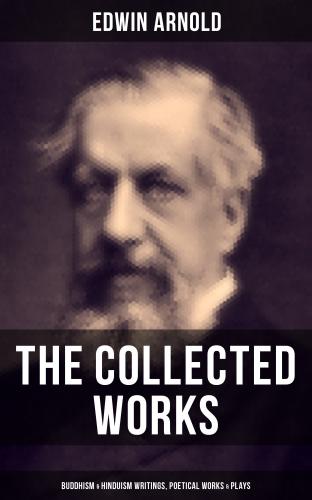Reverence ... is due to righteous conduct.—Fo-sho-hing-tsan-king.
The wise man ... regards with reverence all who deserve reverence, without distinction of person.—Ta-chwang-yan-king-lun.
For if virtue flags and folly rules, what reverence can there be ... for a high name or boast of prowess, inherited from former generations?—Fo-sho-hing-tsan-king.
Fools of little understanding have themselves for their greatest enemies, for they do evil deeds which cannot but bear bitter fruit.—Dhammapada.
There is not a spot upon earth, neither in the sky, neither in the sea, neither ... in the mountain-clefts, where an (evil) deed does not bring trouble (to the doer).—Udanavarga.
Surely if living creatures saw the consequence of all their evil deeds, ... with hatred would they turn and leave them, fearing the ruin following.—Fo-sho-hing-tsan-king.
Exercising love towards the infirm.—Fa-kheu-pi-us.
Ever inspired by pity and love to men.—Fo-sho-hing-tsan-king.
He lived for the good of mankind.—Jatakamala.
Whatsoever living beings there are, feeble or strong, small or large, seen or not seen, may all creatures be happy-minded.—Metta-sutta.
Yield not (one moment) to the angry impulse.—Fo-sho-hing-tsan-king.
Overcome anger by love.—Dhammapada.
A wise man never resents with passion the abuse of the foolish—Ta-chwang-yan-king-lun.
In agreement with all men, and hurting nobody, ... he, as far as possible, does good to all.—Fo-pen-hing-tsih-king.
Reverently practicing the four gracious acts—
Benevolence, charity, humanity, love;
Doing all for the good of men, and that they in turn may benefit others.
—Phu-yau-king.
They also,[2] resigning the deathless bliss within their reach, Worked the welfare of mankind in various lands. What man is there who would be remiss in doing good to mankind?
—Quoted by Max Muller.
He identified himself with all beings—Jatakamala.
Because the dove fears the hawk,
With fluttering pennons she comes to seek my protection.
Though she cannot speak with her mouth,
Yet through fear her eyes are moist.
Now, therefore, I will extend (to this poor creature)
My own protection and defense.
—Ta-chwang-yan-king-lun.
How indifferent he was to his own welfare!...
How intolerant of the suffering of others!—Jatakamala. In every condition, high or low, we find folly and ignorance (and men), carelessly following the dictates of ... passion.—Fo-sho-hing-tsan-king.
Neither is it right to judge men's character by outward appearances.—Ta-chwang-yan-king-lun.
The body may wear the ascetic's garb, the heart be immersed in worldly thoughts: ... the body may wear a worldly guise, the heart mount high to things celestial.—Fo-sho-hing-tsan-king.
Full of truth and compassion and mercy and long-suffering.—Jataka.
Uprightness is his delight.—Tevijja-sutta.
Making ... virtue always his first aim.—Fa-kheu-pi-u.
An example for all the earth.—Fo-sho-hing-tsan-king.
What he hears he repeats not there, to raise a quarrel against the people here.—Tevijja-sutta.
He injures none by his conversation.—Samanna-phala-sutta.
Walk in the path of duty, do good to your brethren, and work no evil towards them.—Avadana Sataka.
Aiming to curb the tongue, ... aiming to benefit the world.—Fo-sho-hing-tsan-king.
Intent upon benefiting your fellow-creatures.—Katha Sarit Sagara.
Health is the greatest of gifts, contentment the best of riches.—Dhammapada.
If thou be born in the poor man's hovel, yet have wisdom, then wilt thou be like the lotus-flower growing out of the mire.—Jitsu-go-kiyo.
He that is rich but is not contented endures the pain of poverty.—Fo-sho-hing-tsan-king.
The words of Buddha, even when stern, yet ... as full of pity as the words of a father to his children.—Questions of King Milinda.
Overcoming all enemies by the force (of his love).—Fo-sho-hing-tsan-king.
How great his pity and his love toward those who opposed his claims, neither rejoicing in their defeat, nor yet exulting in his own success!—Fo-sho-hing-tsan-king.
The Buddha has mercy even on the meanest thing.—Cullavagga.
He that ... would wait upon me,[3] let him wait on the sick.—Mahavagga.
The Buddha, O king, magnifies not the offering of gifts to himself, but rather to whosoever ... is deserving.—Questions of King Milinda.
If you desire to honor Buddha, follow the example of his patience and long-suffering.—Fo-sho-hing-tsan-king.
Radiant with heavenly pity, lost in care
For those he knew not, save as fellow-lives.
—Sir Edwin Arnold.
Who that hears of him, but yearns with love?—Fo-sho-hing-tsan-king.
[1] Buddha.
[2] Buddhist missionaries.
[3] Buddha.
Hindu Literature: Comprising The Book of good counsels, Nala and Damayanti
The Story of the Tiger and the Traveller
The Story of the Jackal, Deer, and Crow
The Story of the Vulture, the Cat, and the Birds
